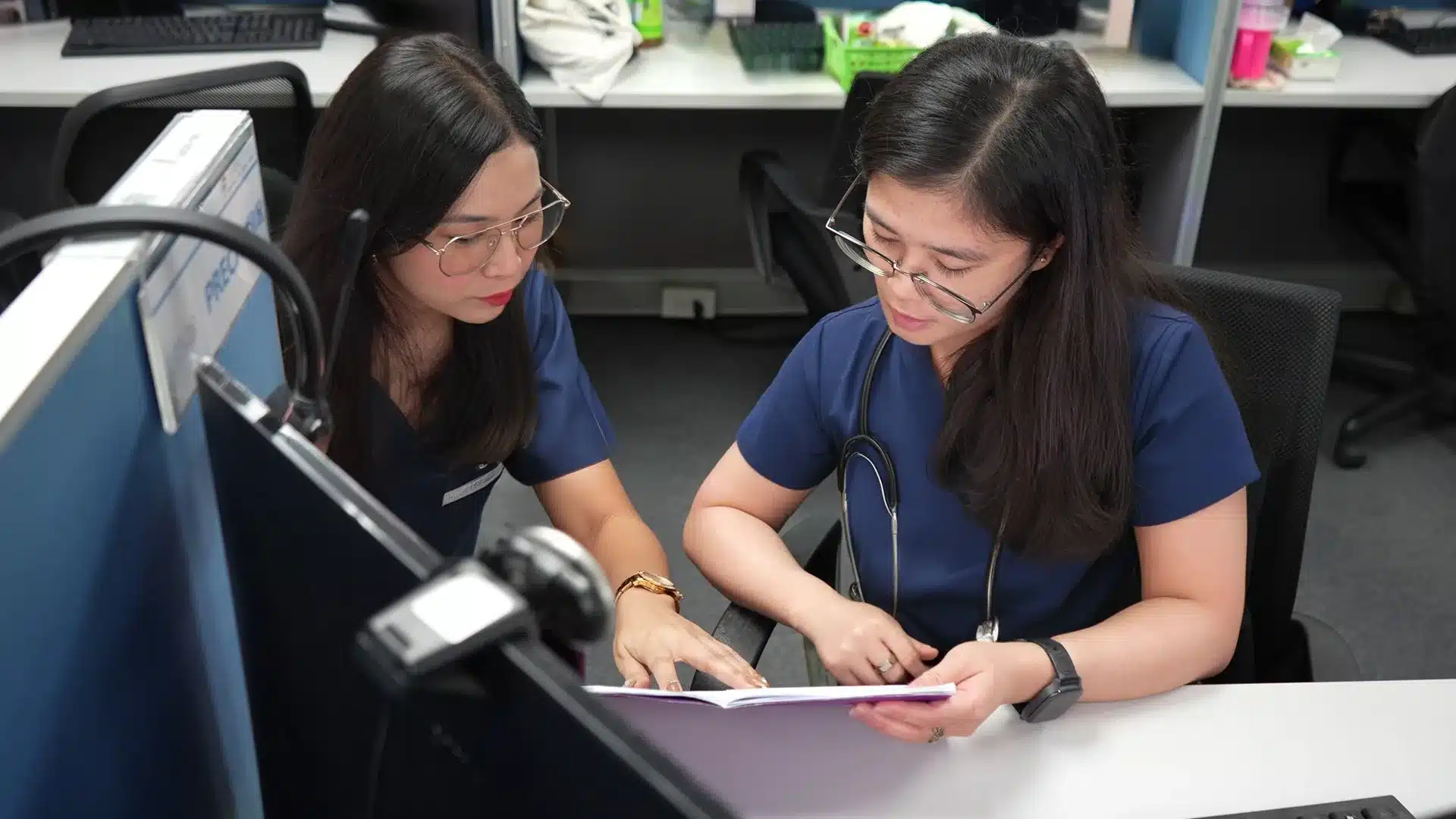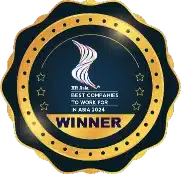BLOG
Keep up to date with the latest news
Future-Proof Your Career: Top In-Demand Jobs for 2025 in the Philippines

Ever feel like the job market is constantly on the move? It’s no surprise! Technology, globalization, and economic shifts are reshaping how we work. But here’s the good news: the Philippines is thriving with economic growth, bursting with new businesses and industries. This means exciting opportunities are waiting for you!
Choosing the right career path is a big decision. Landing a job that’s in high demand can offer stability, great earning potential, and the chance to be part of something innovative. We’ll explore the rapidly growing careers expected to grow in the Philippines by 2025. Consider this as your personal career roadmap! By getting familiar with these trends, you’ll be well-equipped to make informed choices about your future and land that perfect role in the ever-evolving job market. So buckle up, get ready to explore, and discover exciting in-demand careers that could be the perfect fit for you!
I. The Philippines is Going Digital – and So Are the Jobs!

The Philippines is in the midst of a digital revolution. E-commerce is expanding, businesses are establishing a strong online presence, and the population is becoming increasingly tech-savvy. This exciting shift isn’t just changing how we shop and connect – it’s creating a whole new wave of in-demand jobs.
As more businesses embrace digitalization, they’ll need skilled professionals to navigate this online landscape. If you’re seeking a career with ample opportunities, the digital era offers a wealth of possibilities. In the following sections, we’ll explore some of the in-demand jobs expected to rise alongside the Philippines’ growing digital economy.
II. Top In-Demand Job Categories
A. Tech & IT Professionals
- Software Developers: Software developers are the architects of the digital world. They build and maintain the websites and software applications we use every day. To become a software developer, a bachelor’s degree in computer science, information technology, or a related field is typically preferred. However, some employees may consider candidates with strong programming skills and relevant experience, even without a four-year degree. Earning certifications in specific programming languages or software development methodologies can also be beneficial.
- Data Scientists: Data scientists are in high demand in today’s data-driven society. They analyze large datasets to uncover hidden patterns and insights that can inform business decisions and solve complex problems. Data scientists typically hold a bachelor’s degree in a quantitative field like mathematics, statistics, or computer science, often followed by a master’s degree in data science or a related field. Strong analytical skills, programming abilities, and knowledge of statistics and machine learning are essential for this role.
- Cybersecurity Analysts: Cybersecurity analysts play a critical role in protecting computer systems and networks from cyberattacks. These professionals identify vulnerabilities in digital systems, implement security measures to prevent breaches, and respond to security incidents to keep data safe. A bachelor’s degree in cybersecurity, computer science, or information technology is a good foundation for a career in cybersecurity. Certifications in specific cybersecurity frameworks and tools can also be valuable assets.
- Software Developer:
- FreeCodeCamp: Learn valuable coding skills through interactive projects and a supportive online community. Explore their curriculum in languages like Python, JavaScript, and Java.
- Coursera’s Google IT Automation with Python Specialization: This free course introduces the fundamentals of Python programming and its application in automating IT tasks.
- edX’s Introduction to Computer Science by MIT: Gain a foundation in computer science concepts with this free course from MIT.
- Data Scientist:
- Khan Academy’s Computer Programming Courses>: Build a learning ground in programming with free courses on data structures and algorithms, essential skills for data scientists.
- IBM’s Data Science Professional Certificate on Coursera: This free course introduces core data science concepts like data analysis and visualization.
- Kaggle Learn Courses: Enhance your data science skills with free courses on data manipulation, machine learning, and data visualization offered by Kaggle, a popular platform for data science competitions.
- Cybersecurity Analyst:
- Cybrary: This platform offers a comprehensive library of free cybersecurity courses, covering topics like ethical hacking and penetration testing.
- SANS Institute’s InfoSec Reading Room: Access free whitepapers and security resources from a leading cybersecurity training provider.
- National Initiative for Cybersecurity Careers and Studies (NICCS): Explore free cybersecurity courses and training programs offered by NICCS, a U.S. government-backed initiative.
B. Digital Marketing & Sales
- Social Media Manager: Imagine being the voice of a brand online. Social media managers create engaging content, manage a brand’s social media presence, and interact with followers to build online communities. Strong communication, creativity, and an understanding of current social media trends are key for this dynamic role. A bachelor’s degree in marketing, communications, or a related field is preferred, but some employers may consider candidates with a strong portfolio showcasing their social media marketing skills and relevant experience (e.g., managing social media accounts for clubs or organizations). Certifications like HubSpot Social Media Marketing Certification or Facebook Blueprint Certification can also demonstrate your expertise.
- Content Marketing Specialist: In today’s information age, content is valuable! Content marketing specialists are the masterminds behind creating valuable content, like blog posts, infographics, and videos, that attracts and engages a target audience. If you have a knack for storytelling and a passion for research, a career in content marketing could be a great fit. A bachelor’s degree in marketing, journalism, English, or a related field is typically preferred, but a strong portfolio showcasing your writing and content creation skills can be equally important. Internship experience in content marketing or freelance writing gigs can also be beneficial. Certifications like Google Analytics Individual Qualification (IQ) or Hubspot Content Marketing Certification can add value to your resume.
- E-commerce Specialist: E-commerce is booming in the Philippines, and e-commerce specialists are the driving force behind successful online stores. These professionals manage all aspects of an online store, from product listings and marketing campaigns to customer service. If you’re detail-oriented, have a strong understanding of online marketing, and enjoy a fast-paced environment, then this might be the perfect career path for you. A bachelor’s degree in business administration, marketing, or a related field is preferred, but some employers may consider candidates with experience in e-commerce operations or online marketing. Building your own e-commerce store or working on e-commerce projects during internships can provide valuable experience. Certifications like Shopify eCommerce Specialist or Google Ads Search Certification can also be helpful.
- Social Media Marketing:
- HubSpot Academy Social Media Marketing Certification: Gain a comprehensive overview of social media marketing strategies and tactics
- Facebook Blueprint: Explore free courses on various Facebook marketing topics to master this powerful platform
- Udemy: Search for “Social Media Marketing Courses” on Udemy to find a variety of free and paid courses on social media marketing strategies, content creation, and paid advertising. Here are a couple of options to get you started:
- Social Media Marketing Masterclass: Master the ins and outs of social media marketing with this comprehensive course. Learn proven strategies and tactics to build a strong online presence, engage your audience, and drive results for your brand.
- Social media Marketing Strategy: Develop a winning social media strategy tailored to your specific goals. This course will guide you through audience research, content creation, platform selection, and campaign measurement.
- The Complete Social Media Marketing Course: This all-encompassing course provides a complete social media marketing toolkit. Learn about organic and paid advertising, content creation best practices, social media analytics, and more.
- Content Marketing:
- Google Digital Garage: Learn valuable content marketing skills through Google’s free online courses, including topics like SEO basics and content strategy.
- Skillshop by Google: This platform offers a range of free online courses specifically designed to help you develop your digital marketing skills. Explore courses on Google Ads, Google Analytics, YouTube Marketing, and more.
- Content Marketing Institute: Access free blog posts, webinars, and ebooks on content marketing best practices from a leading industry resource.
- Udemy: provides free and paid courses for content marketing. Here are a couple to consider:
- The Content Marketing Masterclass: This course will guide you through content planning, strategy development, and effective promotion techniques.
- Content Marketing for Beginners: This beginner-friendly course provides a solid foundation in content marketing principles. Learn how to develop a content strategy, create different content types, and distribute your content across the right channels.
- E-commerce:
- FutureLearn: Explore free online courses on e-commerce fundamentals, like launching an online store and marketing strategies, offered by universities and industry experts
- Shopify Learn: Gain valuable insights into building and managing an online store with free courses offered by the leading e-commerce platform Shopify.
- Udemy: Udemy provides free and paid courses. Here are a couple to spark your interest
- E-commerce Mastery Course: Build Your Successful Online Business: Learn to launch and grow a successful online store, including product sourcing, marketing strategies, fulfillment operations, and more.
- Shopify for Beginners: Launch & Grow Your Ecommerce Business: Learn the essential steps to set up your store, add products, manage payments and shipping, and utilize Shopify’s features to optimize your e-commerce journey.
C. Customer Service & Support
In today’s competitive business landscape, excellent customer service is a necessity. Think about it: positive interactions with a brand can turn customers into loyal fans, while negative experiences can quickly damage a company’s reputation. That’s why customer service and support roles are in such high demand across various industries.
These professionals play a vital role in building strong relationships with customers, ensuring a smooth and positive experience. Whether it’s resolving technical issues, answering questions about products and services, or simply going the extra mile to make a customer feel valued, customer service representatives are the backbone of a successful customer experience strategy.
This section will be tackling the exciting world of customer service and support, highlighting some of the most in-demand professions within this field. Here, we’ll explore the key skills and qualities needed to excel in these roles, along with potential career paths for those who are passionate about building positive customer relationships.
So, what kind of customer service jobs are we talking about? Here are a few of the in-demand job roles expected to be in high demand by 2025:
- Customer Success Specialist: These professionals go beyond simply solving problems – they focus on building long-term relationships with customers and ensuring their overall satisfaction with a product or service. Think of them as customer advocates, proactively identifying potential issues and helping customers get the most out of what they’ve purchased. Strong communication, problem-solving, and analytical skills are key for this role, along with a genuine passion for building customer loyalty.
- Technical Support Specialist: Technical support specialists are those who come to the rescue. They provide technical assistance to customers, troubleshooting issues, answering questions about software or hardware, and guiding them through solutions. A strong understanding of technology and the ability to explain complex concepts in a clear and concise way are essential for this role. Additionally, patience and a customer-centric approach are crucial for navigating potentially stressful situations.
- Call Center Representative: The voice of a company! Call center representatives are the front line of customer interaction, fielding phone calls, answering questions, and providing support. Excellent communication skills, active listening abilities, and the ability to remain calm under pressure are key for this role. Additionally, some call center representatives may specialize in specific areas, such as technical support or billing inquiries.
D. Healthcare Professional
The Philippines is experiencing a growing population, and with it comes a constant need for dedicated healthcare professionals. These skilled individuals play a vital role in ensuring the health and well-being of Filipinos across the country. This demand is further amplified by an aging population, which requires specialized healthcare services.
This section focuses on the crucial role of healthcare professionals in the Philippines, highlighting some of the most in-demand professions within this field. Whether you’re drawn to direct patient care or the intricacies of medical research, there’s a vast array of rewarding career paths waiting for you in the ever-changing field of healthcare.
Here, we’ll explore some of the most critical healthcare professions expected to remain in high demand by 2025:

- Doctors: Doctors are the cornerstone of the medical field, diagnosing and treating a wide range of illnesses and injuries. They require a Doctor of Medicine (MD) degree and successful completion of national licensure exams. Specialization in a particular area like pediatrics, cardiology, or surgery can further enhance career opportunities.
- Nurses: Nurses are the backbone of the healthcare system, providing essential care to patients in hospitals, clinics, and other healthcare settings. They work directly with doctors, administering medications, monitoring vital signs, and providing emotional support to patients. The Philippines faces a shortage of nurses, both domestically and internationally. This high demand is due to several factors, including an aging population requiring more healthcare services, a growing number of hospitals and clinics, and an increase in chronic diseases. Registered Nurses (RNs) typically hold a Bachelor of Science in Nursing (BSN) degree and pass the national licensure exam, while Licensed Practical Nurses (LPNs) complete a shorter training program and pass a separate licensure exam.
- Physical Therapists: Physical therapists help people regain mobility and function after injuries or illnesses. They work with patients to develop individualized treatment plans that may include exercises, massage therapy, and other techniques. A growing elderly population and a rise in chronic diseases such as stroke, arthritis, and diabetes are contributing to the increased demand for physical therapists in the Philippines. A Bachelor of Science in Physical Therapy (BSPT) degree and licensure are necessary to practice in the Philippines.
- Medical Technologists: Medical technologists play a critical role in diagnosing diseases by analyzing blood, tissue, and other body fluids. They operate sophisticated laboratory equipment and perform a variety of tests to provide crucial information for doctors. The increasing use of laboratory tests in diagnosing and treating diseases, coupled with an aging population and a growing number of healthcare facilities, is driving the demand for medical technologists in the Philippines. A Bachelor of Science in Medical Technology (BSMT) degree and licensure are required for this career path.
- Psychologists: Psychologists assess, diagnose, and treat mental, emotional, and behavioral disorders. They use a variety of therapy techniques to help individuals cope with challenges and improve their mental well-being. A Master’s degree in Psychology and licensure are required to practice psychology in the Philippines. Specialization in a particular area like clinical psychology, child psychology, developmental psychology, or industrial psychology can further enhance career opportunities. The demand for psychologists is growing in the Philippines for several reasons. First, there is a growing awareness of mental health issues, and people are more likely to seek professional help. Second, the fast-paced and demanding nature of modern life can contribute to stress, anxiety, and depression. Third, the Philippines is experiencing a demographic shift, with a growing elderly population that may require mental health services. Psychologists can help individuals and families cope with these challenges and improve their overall well-being.
IV. Additional In-Demand Skills
While specific technical skills are important for certain jobs, there’s another set of skills that cut across job titles and industries – transferable skills.
Think of transferable skills as your professional toolkit – a collection of abilities that you can apply across different roles and situations. These skills are the foundation for adaptability and growth in your career. Here, we’ll explore some of the most valuable transferable skills that employers are looking for in today’s workforce:
- Communication: Being able to clearly and effectively communicate your ideas, both verbally and in writing, is essential for any job. This includes active listening, understanding different communication styles, and tailoring your message to your audience.
- Problem-Solving: No matter what field you work in, you’ll inevitably encounter challenges. A strong ability to solve problems involves identifying the root cause of an issue, brainstorming creative solutions, and evaluating the effectiveness of your approach.
- Critical Thinking: Critical thinking involves analyzing information objectively, identifying potential biases, and making sound judgments. This skill is crucial for making informed decisions and navigating complex situations.
- Teamwork: The ability to collaborate effectively with others is essential for success in most workplaces. This includes actively participating in discussions, respecting diverse perspectives, and working towards a common goal.
- Adaptability: The ability to learn new things and adjust to changing circumstances is a valuable asset in today’s dynamic job market. Being adaptable allows you to embrace new technologies, processes, and ways of working.
By honing these transferable skills, you’ll be well-positioned to thrive in any workplace. In the following sections, we’ll explore how you can develop and showcase these skills in your career journey.

V. Conclusion
The Philippines is a thriving nation with a dynamic job market. By understanding the trends shaping the future of work, you can make informed decisions about your career path and position yourself for success. This article explored a variety of in-demand job categories, highlighting the exciting opportunities that await in the Philippines by 2025. From tech and IT professionals to healthcare specialists and customer service representatives, there’s a perfect career fit for everyone. Remember, the skills you develop today will pave the way for your future. By honing transferable skills like communication, problem-solving, and teamwork, you’ll be well-equipped to thrive in any field you choose. So, discover your passions, capitalize on your strengths, and launch yourself into a fulfilling career path in the Philippines!
Job Search
Do you have any questions?
If you have any questions, please feel free to ask.



